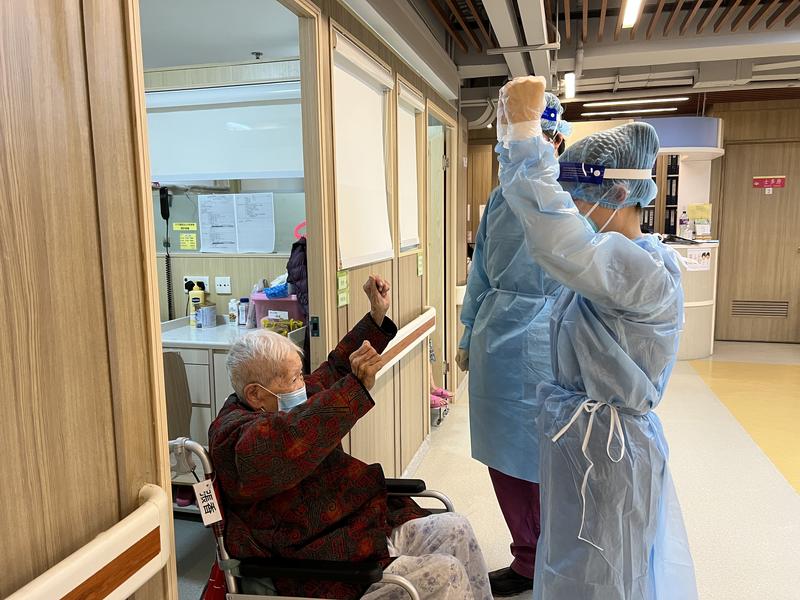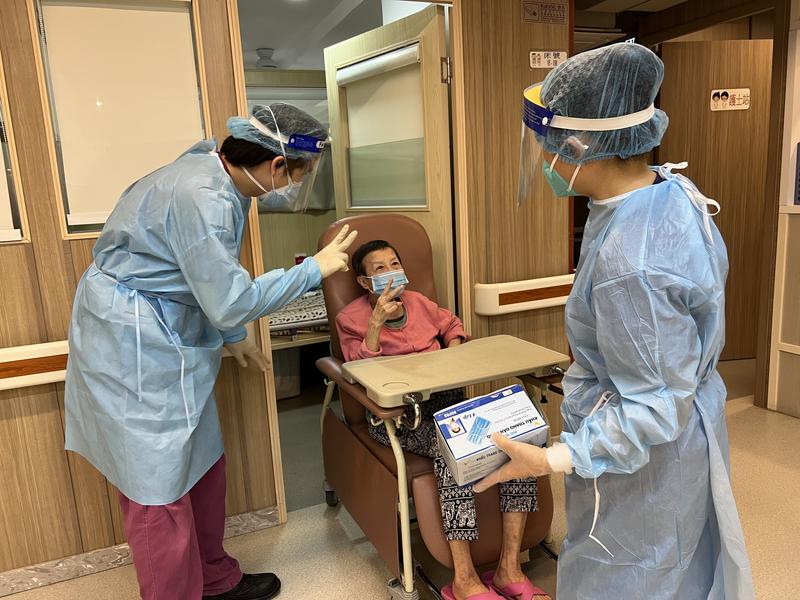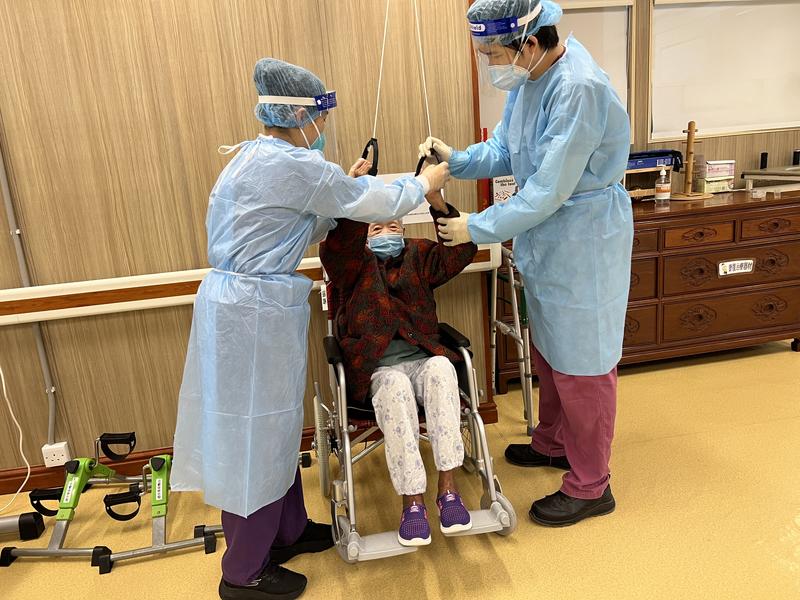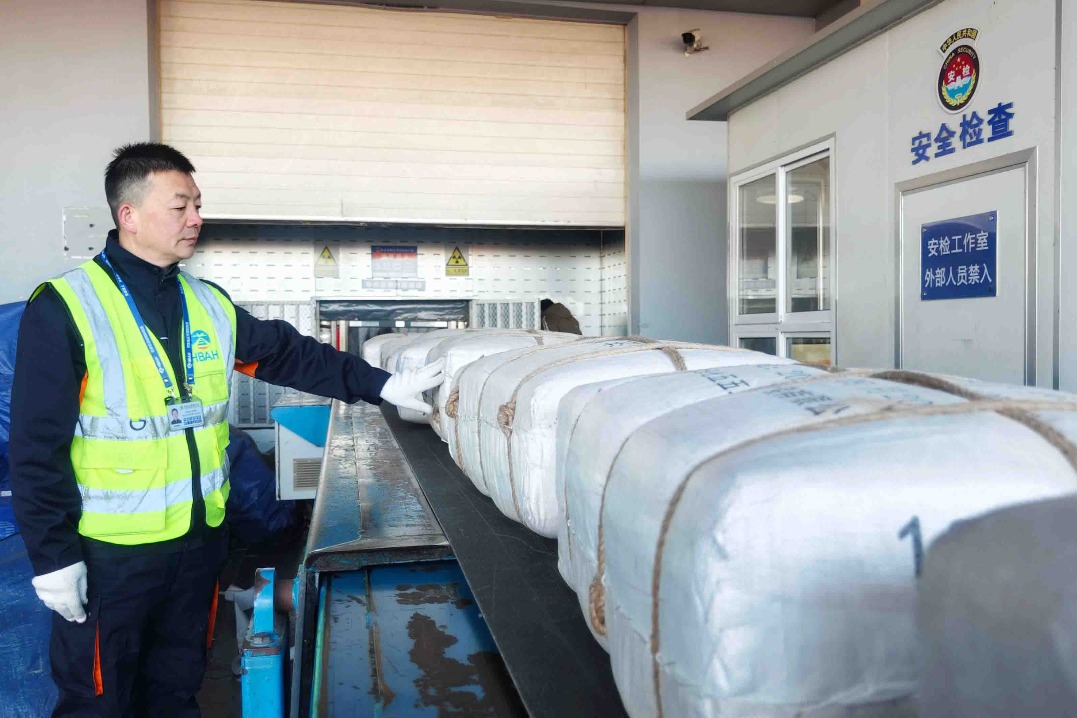COVID diary at the forefront: Not time to bail when they need me

Editor's Note: In our COVID Diary series, the spotlight is on ordinary folks who share first-person accounts of their fight with the virus and how they've helped others in need. In the third of this series, China Daily puts its lens on the city's hardest-hit elderly-care homes. Among those infected when taking care of the vulnerable older adults was 46-year-old Li Hongmei, manager of Patient Care Worker of Dragon's Home, a private nursing home in North Point. She shared experiences of her COVID-19 fight with China Daily reporter Shadow Li.

When a senior female resident at the nursing home where I worked developed a fever on Feb 16, panic quickly shrouded the nursing home. Fear was rising as the city has been embroiled in the worst-ever wave of the pandemic since February. The other shoe dropped the next day, when the hospital confirmed she was positive for COVID-19. Some staff members began to get cold feet. Three called in sick, and five more even quit the job in the following days.
Three days before the first confirmed infection was found in my workplace, I had made up my mind to move to the nursing home after seeing the pandemic was heading for an unfavorable turn, with cases beginning to surge in the community day after day since February. I couldn't afford to be the one who might bring the virus in the community to the elderly. So I went home to pick up my belongings. My husband had his worries. He tried to discourage me from doing so, and asked me to take sick leave instead.
I told him that this was not the time to bail out on the elders when the nursing home, hitting an all-time low in morale, was in dire need of helping hands.
So in the following days, I lived on one of the couches in the lobby. At 7 am, I would start my work and call it a day at 7 pm.
Adding to the woes was that one of our staff members tested positive on Feb 24. The manpower was further stretched to its limits by the pandemic. And two days later, I was the one forced to take a step back from the forefront of my work after contracting the virus. I had a low-grade fever, fatigue and itchy throat — all symptoms of a possible COVID-19 infection. My next daily rapid antigen test result confirmed the case for me.

I couldn't go home or stay at the nursing home. Luckily, I was offered a company's dorm for self-quarantine.
Five days later, I tested negative. But the virus left me with dysgeusia (affecting the sense of taste), fatigue, and a hoarse voice. I have been taking traditional Chinese medicine, including Lianhua Qingwen Jiaonang, distributed by my company, to treat my symptoms. I regained some of my sense of taste after days' treatment of traditional Chinese medicine.
The moment I tested negative, I applied to get back to work immediately to relieve the work burden on my colleagues. So I continued to live in the company's dorm.
The pandemic has made my line of work even harder. Compounding the situation was the freezing cold weather in February.
It was especially evident for those who contracted COVID-19. The coronavirus made the seniors unable to sit without fainting. They had to lie in bed almost all day. I had to wipe their bodies clean, feed them milk and help them roll over to avoid bedsores or muscle wasting. Yet the hardest part was many of the infected elders have lost their appetite, making it even harder to take in food. Sometimes, the elderly wouldn't even open their mouths. In light of these, we would feed the elders milk or liquid food for breakfast and lunch.
For afternoon tea, some family members of the elders would bring porridge to us and have us feed it to the elderly residents. Before the pandemic, it was not a big deal as most seniors can have their meals on their own. With the virus at play, the food-taking process was stretched to three hours or longer. I had to stop at a few spoonful of porridge before the infected elderly threw a fit. I would come back in a few minutes to try again.

My heavy protective gear posed another stumbling block to doing my job. I had to wear a protective gown, one surgical face mask under the N95 face mask, and a face shield when taking care of the elderly. I and two dozen other caregivers were responsible for about 100 elderly residents at the very beginning, and the number gradually dropped when some elderly were taken home to avoid the virus, and others were infected and hospitalized.
At the height, all senior residents, mostly having chronic diseases, contracted the virus, and about six of them didn't make it. Currently, we have 77 elderly, all recovered, who are with us.
On the staff side, all but seven or eight staff members managed to stay clear away of the contagious pathogen.
Lately, we received many thank-you calls from the family members of the seniors. To me, nothing is more rewarding than seeing them regain their health and spirits. In hindsight, my decision to live in the nursing home was a good call.
- Respiratory infections within expected range, WHO and China say
- Beijing police enhance overseas cooperation in crackdown against telecom fraud
- Former Xinjiang official pleads guilty to accepting $112m in bribes
- China identifies cluster of clade Ib mpox infections
- Gansu noodle team rushes aid to earthquake-hit Xizang
- Hebei sends winter supplies to earthquake-hit Xizang





































